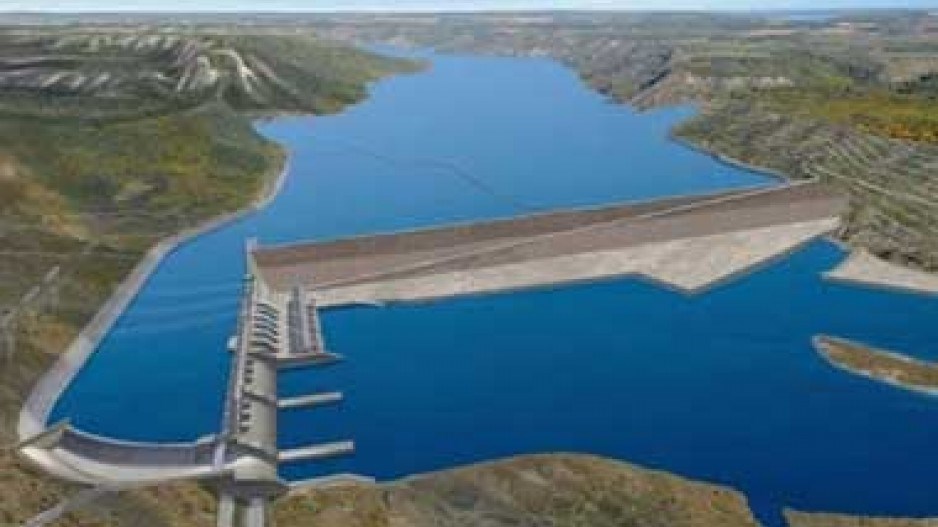Two different courts have ruled against opponents of the Site C hydroelectric dam, who have been trying to halt the $9 billion project.
On Friday, August 28, the Federal Court dismissed an application for a judicial review of the project by the Prophet River and West Moberly First Nations, both of which are signatories to Treaty 8. It also dismissed a judicial review application by the Peace Valley Landowners Association.
On the same day, the BC Supreme Court also rejected an injunction sought by the same two First Nations intended to halt work from proceeding on the mega-dam project, which will require the flooding of valuable farmland in the Peace Valley.
There are still outstanding court challenges dealing with permits that the courts have yet to rule on.
Robin Junger, a lawyer specializing in aboriginal and environmental law with McMillan LLP, said the most recent decision by the Federal Court is an important one, because it challenges the popular view that major industrial or public works can be indefinitely held up by First Nations legal challenges.
“This notion that First Nations can tie things up in litigation is an overstatement,” he said.
Last week, lawyers for BC Hydro argued in court that an injunction could delay the project by a year, adding more than $300 million to the cost of the project.
As signatories to Treaty 8, the West Moberly and Prophet River First Nations argued that the project infringed their treaty rights.
A joint review panel confirmed that Site C dam would have an impact on Treaty 8 First Nations rights. The question for governments and the courts is whether those infringements are justifiable.
Treaties do not give signatories a veto over what happens within the lands described within a treaty, and contain provisions that allow for the “taking up” of lands in the greater public interest, although governments do have a duty to consult with First Nations.
The two First Nations argued that the BC government and BC Hydro did not do a comprehensive enough job consulting with them in approving Site C. Federal Court Judge Michael Manson disagreed.
In his ruling, he pointed out that consultation began in 2007 and that BC Hydro and government officials met with the two First Nations 177 times and provided them with $5.9 million in “capacity funding” to conduct their own traditional land use baseline studies, hire consultants and participate in an environmental review process.
That is over and above what the West Moberly and Prophet River First Nations would have received from the provincial and federal governments as part of the environmental review process, Manson pointed out.
He also pointed out that the Crown had tried to engage with the First Nations to discuss mitigation, but that the First Nations “refused to engage in such a dialogue.”
“In my view, BC Hydro’s consultation has been extensive and conducted in good faith,” Manson wrote.
“The moral of the story is, if the government and the proponent have done a good job of consulting, they should not fear litigation,” Junger said.
“What I think is noteworthy here is that the provincial government is going forward, standing on its record, standing up to these challenges in court, moving forward with the project, despite the objections of the First Nations, and you don’t see that a lot, to be frank.”
As for the Peace Valley Landowners Association judicial review application, it argued that – based on a joint review panel’s findings – the province and BC Hydro had not proven that the demand for additional electricity had been sufficiently established to so as to warrant the negative environmental impacts of Site C dam.
Although the court agreed that BC Hydro and the joint review panel differed on when additional power would be required, it said the projections were off by only four years, which Manson said “is not significant in the life of the project.”
Spokespersons for the Peace Valley Landowners Association and Moberly and Prophet River First Nations could not be reached for comment.




